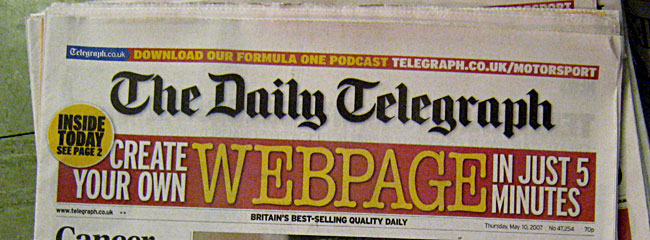
Galway’s newest resident.
The raging prosperity of my homeland has to be seen to be believed. Some of its manifestations are horrible — for example the despoilation of what were once lovely seaside towns by build-to-rent development. Some are comical — as in the practice of renting stretch limos to deliver 7-year-old girls to their First Communion. And some are beyond satire.
Take the current situation in Galway, the lovely town near where my father’s family live. A stop-frame video made from satellite images of Galway over the last 15 years would show a municipality growing like a tumour, as field after field and hill after hill is covered by speculatively-built housing estates created without the infrastructure to support such explosive growth.
Now we discover the consequences: the public water supply in Galway is no longer safe to drink. On March 28, RTE News reported that:
It has emerged that the city and county water supply in Galway has been contaminated by both human and animal waste.
Tests carried out in laboratories in Wales have also established that the strain of cryptosporidium parasite which has been found in water reservoirs and treatment plants can be transmitted from human to human.
The Health Service Executive says the situation remains a very serious one and it is of the utmost importance that all water is boiled before use.
Experts have told RTÉ News it could be up to six months before tap water is safe to drink in parts of Galway affected by pollution.
Up to 90,000 householders and businesses are affected, and today the number of cases of the cryptosporidium illness in the country rose to 125.
Since then, everyone in Galway has had to use bottled water. Newspapers are full of photographs of families trudging back from supermarkets laden down with huge plastic bottles. Nobody has any idea when — or how — the problem is going to be resolved. It’s got to the state where ‘GalwayWaterCrisis’ even has its own MySpace Profile — surely an innovative use of social networking.
It’s not entirely clear yet what the source of the pollution is, but the Guardian reports that:
Suspicions have focused on a sewage treatment plant at Oughterard, north of Galway, which pumps effluent into Lough Corrib. The Green party mayor of Galway, Niall Ó Brolcháin, claims the plant, built 60 years ago to cater for 250 houses, is unable to cope with the sewage from the now 800 homes in Oughterard that have spread out over the land. “Water services are at capacity and have been for some time,” Mr Ó Brolcháin said. “Yet we are still continuing to develop more houses. That’s wrong. That’s why we are in this mess.”
The Mayor and local politicians blame the government; Environment Minister Dick Roche, however, will have none of it: he retorts that the government had already made 21m euros available for water treatment projects in Galway, but the local council had failed to make use of the money. For once, I agree with the government: this looks like a product of local greed, corruption of the planning system and incompetence. Meanwhile the local business community — which is a major holiday and tourist destination — is beginning to sweat. Will the usual hordes of holidaymakers throng to a resort where you can’t drink the water? Stay tuned.
The delicious irony, of course, is that tainted water used to be a hazard of poor countries like India. In searching for a phrase to describe modern Ireland, a slogan first devised by John Kenneth Galbraith comes to mind. “Private affluence and public squalor”.
The crisis has also, I understand, affected supplies of ‘Holy Water’, which now has to be imported from heathen but uncontaminated localities.


